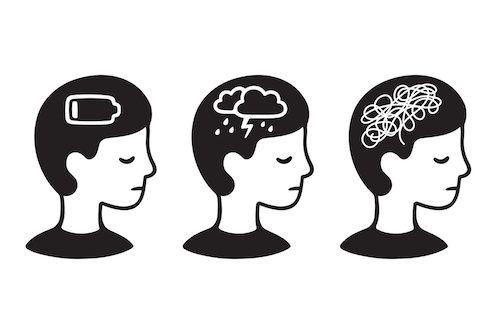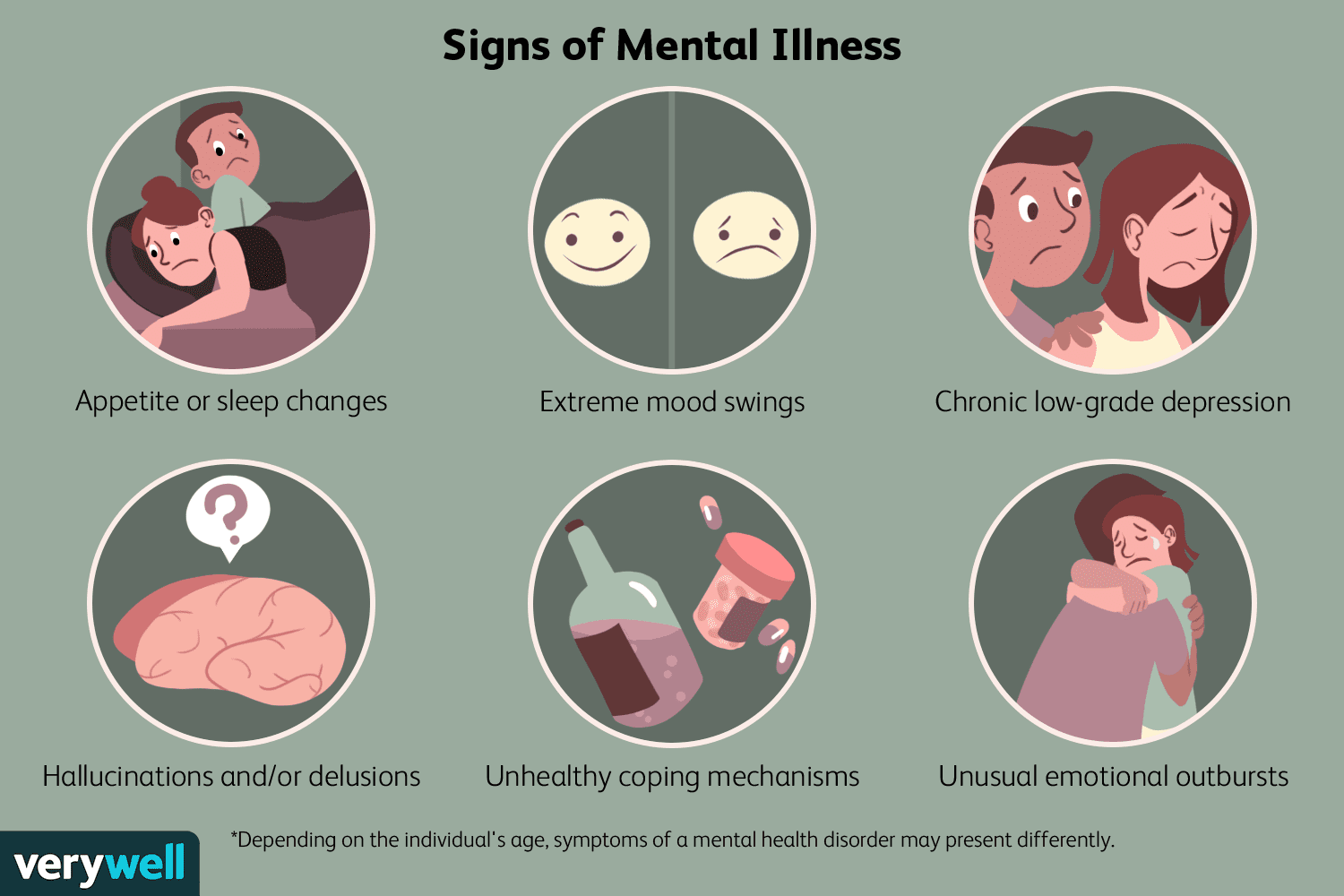PAF30 Mental Health Project

Mental illnesses can show themselves in a variety of ways, and can have a wide variety of negative effects on those afflicted, from facilitating substance abuse to issues with socializing to inflicting harm on themselves or others. Mental illness is very much unstandardized, with as wide a variety of potential mental disorders as there are physical ones. This webpage goes over some surface level information on the causes and effects of mental illness, as well as how to cope with it.
Causes of Mental Illness

Mental illness can have a variety of causes. Sometimes, it simply manifests due to a genetic predesposition, as is common with disorders like depression or ADHD. In other cases, it can be brought on by major changes in life or prolonged exposure to negative stimuli, with PTSD likely being the best-known example.
Effects of Mental Illness

Mental illnesses can have a wide array of symptoms depending on the exact illness present, but some general effects include frequent or pervasive bad moods, an inability to focus, feeling closed off from others, and all sorts of anxieties (especially in a straight-up anxiety disorder). Usually mental illnesses either cause or are caused by large amounts of stress, making things unpleasant for those affected regardless of their precise symptoms.
Warning Signs of Suicide

Suicide is a sudden change, and oftentimes someone coming to the conclusion that they're going to commit suicide can result in drastic mood swings. Generally, those who feel suidical will seem especially upset, and often will already be committing acts of self-harm. However, those who've committed to going through with it will often appear much happier, being downright cheerful as they get their affairs in order. While it's nice to see someone looking good after so long feeling down, a sudden uptick in mood with no visible cause can be a good reason to investigate. It could always be a genuine mood swing, but when dealing with something as severe as suicide, you can never be too careful.
Mental Illness & Substance Abuse

Drugs and mental illness can often form a sort of feedback loop. You feel bad, either because of a mental illness or just because of general life stress, and you intake substances as a coping mechanism. It helps in the short term, but leaves you feeling worse, always coming back for another high. That's how addictions form, and the negative impacts of most recreational substances can feed into mental illnesses an incredible amount, making those affected by the even more likely to fall back on drugs as a failsafe. This also deals to a deterioration in physical health, as most drugs have a negative impact on your body and a mental illness means you likely have less energy to devote to keeping yourself healthy.
Dealing with Stress

Everyone has to deal with stress, as it's one of the main motivators to do well in life. However, mental illnesses can blow certain stresses out of proportion, or find stress where others don't. This can make it much tougher to navigate difficult situations. It always helps to make sure you have support to handle stress, whether it be friends, family, or a professional. In addition, changes in mindset and lifestyle can do wonders to change the way you approach stressful situations, although remedies like those are always easier said than done.
Finding Support

There are many ways to get help with these issues. Hotlines, online support groups, therapy, and many other tools are available to help those struggling with mental illness. As this is a Canadian website, I'll link the Canadian government's official resource on mental health issues here, but there's many other resources just a google search away. In times of crisis, there are various hotlines for emergency situations.
